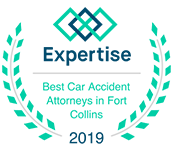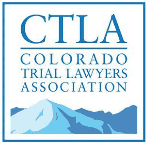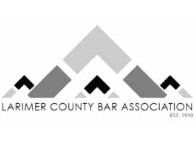Request a Free Consultation | No Upfront FeesSe Habla Español
970-225-2190 |
1-800-664-3151
Recent Blog Posts
Am I Entitled to File for Workers’ Compensation in Colorado?

Even when safety precautions are put in place, accidents can and do happen in many industries. Although no workers’ compensation case is alike, there are certain things a person can expect when filing for benefits regardless of the type of accident. If an individual is hurt and cannot work due to a workplace-related incident, most employees have the right to file a workers’ compensation claim. Employment laws exist to protect employees, and if a claim is approved, an injured worker will be compensated for lost wages and medical bills.
Colorado Employment Law
Almost all public and private employers in Colorado are required to have and maintain workers’ compensation insurance, with few exceptions. Keeping with regulations, a “Notice to Employer of Injury” poster should be visible to employees at all times. Employees should not feel threatened to report an injury if it ever happens. It is illegal to fire an employee who reports an injury and files a workers’ comp claim.
What Factors Determine Who Is at Fault in Colorado Car Accidents?
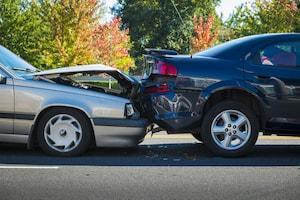
From a minor fender-bender to a rollover accident, car accidents can cause emotional and physical damage to a motorist. It may be nerve-wracking to get behind the wheel again, or an injury can completely change a person’s quality of life. Knowing the main causes of a vehicle accident can help a person become a more defensive driver, and it may also help determine if an accident victim is eligible for a personal injury settlement.
Determining Fault in an Auto Accident
How much a person contributes to the cause of a motor vehicle accident will determine who is liable and who is eligible for compensation. An important part of proving fault is whether or not the other driver acted negligently when the accident occurred. These common causes of car accidents often have a negligent party involved, and are the result of human error:
How Can False Driving Records Lead to Truck Accidents in Colorado?
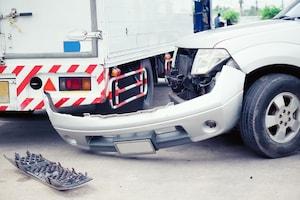
Most people have records of when they work. Whether this is simply for recordkeeping, or to ensure that employees are properly paid for the hours worked, it is important to keep accurate data. If an hourly employee tried to manipulate his or her time card to make it appear as if he or she was working, the worker may be disciplined or even fired for stealing corporate time. However, when a truck driver records incorrect data and provides false driving records, this can not only affect a company's bottom line, but it can result in safety issues. If a driver falsifies information in order to exceed their allowed number of hours on the road, this can lead to dangerous truck accidents.
CMV Driving Limits
Commercial motor vehicle (CMV) drivers are subject to continuous driving limits. A CMV is any type of vehicle that is used for business purposes and meets any one of the following criteria:
How Can Motorcycle Accident Injuries Be Avoided in Colorado?

In 2018, according to the Colorado Department of Transportation, 16.3 percent of motor vehicle fatalities were motorcyclists—totaling 103. This is because, in an accident, a motorcyclist is more likely to suffer fatal injuries compared to a car or truck driver. When a motorcyclist weaves through other vehicles at a high speed, this can cause concern for other drivers. It also creates a poor stereotype that all motorcycle riders are reckless and irresponsible. Motorcycles are viewed as dangerous modes of transportation, and in many cases, the people who ride them have an equally negative bias against them. It is imperative for motorcyclists to adhere to certain safety standards in order to avoid being involved in an accident and suffering serious injuries. However, in some situations, a motorcycle accident can be caused by another driver's negligence.
What Are the Risks of Spinal Cord Injuries in the Workplace?
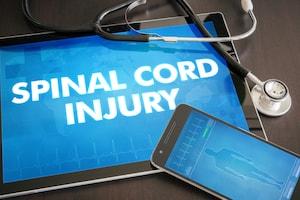
Workers in industries that require manual labor, such as construction, are at most risk for a spinal cord injury while on the job. The spinal cord is one of the most important organs in the human body. Housed by vertebrae, the spinal cord is the information highway of the nervous system that transmits signals to and from the brain. Humans have 33 individual vertebrae, which are the bones that make up the spine. These bones can be damaged as easily as a femur or humerus bone, except that instead of a broken leg or arm, the result can be damage to the spinal cord, resulting in paralysis in some cases. When this happens, and an employee is unable to return to work, he or she may be eligible for workers’ compensation.
What Is Workers’ Compensation?
How Can I Seek Compensation for a Rollover Car Accident in Colorado?
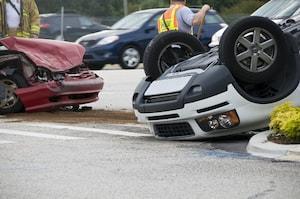
When a car rolls over, the driver and passengers can suffer serious injuries or fatalities. The roof of a passenger car is not built to withstand the weight of the lower half of the vehicle, and therefore, it is likely to collapse. Even a minor car accident can lead to painful injuries, but when extreme trauma is involved, a victim may be temporarily or permanently disabled. In some cases, another driver’s negligence may have caused the rollover crash, and a victim can file a personal injury lawsuit.
Proving Negligence
Larger vehicles, such as SUVs and commercial trucks, are more likely to roll over than a compact car. This is because the center of gravity is higher on large automobiles. A quick turn or maneuver can easily cause a larger vehicle to flip over. A driver may try to act quickly in response to another driver’s actions, and that reaction may cause their car to turn over. A car may also roll over if forced off the road. According to the National Highway Traffic Safety Administration (NHTSA), the most common cause of rollovers is the latter, where a vehicle’s wheels are affected by uneven terrain after colliding with another automobile.
What Can Drivers Do to Prevent Pedestrian Accidents in Colorado?
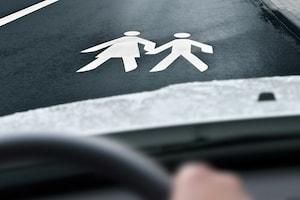
When it comes to pedestrian accidents involving motorists, both parties can be at fault. However, with vehicles having more protection and power than a person walking down the street, drivers have a different level of responsibility when getting behind the wheel. A pedestrian can be put into a dangerous situation by the actions of a driver, even if the person behind the wheel is following the law. Each year, approximately 5,000 pedestrians are killed in an accident with a vehicle. Many more are injured, and these injuries can have lifelong effects. If a pedestrian suffers injuries due to the negligence of a motorist, he or she may be entitled to compensation.
Safety Tips for Motorists
According to the Colorado Department of Transportation (CDOT), the number of pedestrian fatalities went up 11 percent from 2016 to 2017. To help avoid more fatalities, it is a good idea to review safety measures when it comes to sharing the road. Below are some tips drivers can follow to help prevent accidents with pedestrians:
Can Colorado Truck Drivers Receive Workers’ Compensation?

When it comes to workers’ compensation, truck drivers who are injured are in a unique situation in Colorado, depending on their employment status with a company. Many trucking companies hire drivers as independent contractors as opposed to regular full-time employees in an effort to save costs. There are many liabilities with having truck drivers as employees, so technically, an independent contractor would not qualify for workers’ compensation. Instead, under 2018 legislation, independent contractor truck drivers in Colorado qualify under occupational accident coverage for vehicles weighing more than 16,001 pounds. This coverage must be comparable to the employer’s workers’ compensation benefits.
Types of Truck Accidents
Every type of job has the potential for a person to get injured while performing their occupational duties. Truck drivers are different than office workers due to the amount of time they spend on the road for their jobs. While truck drivers are subject to common workers’ compensation claims, such as slips and falls, they can also be involved in accidents specific to trucking. The following are accidents that a truck driver may face while on the job:
What Are the Potential Injuries From a Motorcycle Accident?

The kind of vehicle a driver owns is a matter of personal choice. Some motorists may avoid owning or riding motorcycles due to the high risk of injury. There is a smaller percentage of motorcyclists on the road compared to passenger and commercial vehicles, but according to the National Highway Traffic Safety Administration (NHTSA), motorcyclists account for 14 percent of all traffic fatalities. Motorcycles are unique because they are not restricted, like bicycles or pedestrians, on major highways. However, they offer limited protection for the driver, and therefore, a motorcycle accident can have devastating consequences.
Precautions to Take When Riding a Motorcycle
There are many safety precautions that motorcycle drivers and passengers should take when going out on the road. A driver's and rider’s entire bodies are subject to the surrounding environment since a motorcycle does not offer protection like a car. Basic motorcycle gear includes a helmet and gloves, plus rugged shoes and clothes. Leather is a popular choice because of its durability. In the event of falling off the motorcycle, these items will help protect the driver's and passenger's bodies. Protective eyewear such as sunglasses is also important to reduce the chances of a motorcyclist losing his or her eyesight in a crash.
How Can Improper Maintenance Cause Truck Accidents?
 All companies must uphold the standard practice requirements of their industry. These standards keep consumers safe from issues such as faulty products or contaminated foods. When companies neglect to fulfill these standards, and someone gets hurt as a result, the company may be held liable for the injuries. The same goes for transportation corporations when a truck accident is caused by poorly maintained vehicles.
All companies must uphold the standard practice requirements of their industry. These standards keep consumers safe from issues such as faulty products or contaminated foods. When companies neglect to fulfill these standards, and someone gets hurt as a result, the company may be held liable for the injuries. The same goes for transportation corporations when a truck accident is caused by poorly maintained vehicles.
What Are the Federal Standards for Truck Maintenance?
It is required that all commercial vehicles on the road are driving safely and operating within the conditions set by federal regulations. For instance, if a truck cannot safely carry freight, then it should not be on the road. Companies can monitor how a fleet is operating by keeping accurate and frequent records, requiring regular inspections, and having a staff that routinely maintains the vehicle.

970-225-2190 | 1-800-664-3151
1403 W. 29th St.,
Loveland, Colorado 80538
Greeley:
3835 W. 10th Street, Unit 100,
Greeley, Colorado 80634|
970-460-2220
Longmont:
2204 18th Ave, Suite 123,
Longmont, Colorado 80501|
720-575-0509
Boulder:
4450 Arapahoe Avenue, Suite 100,
Boulder, Colorado 80303|
303-997-2018
Ft. Collins:
123 North College Ave., Suite 160,
Fort Collins, CO 80524|
970-225-2190
Cheyenne:
109 E. 17th St., Suite #6148,
Cheyenne, WY 82001|
307-227-4051 (By Appointment Only)




